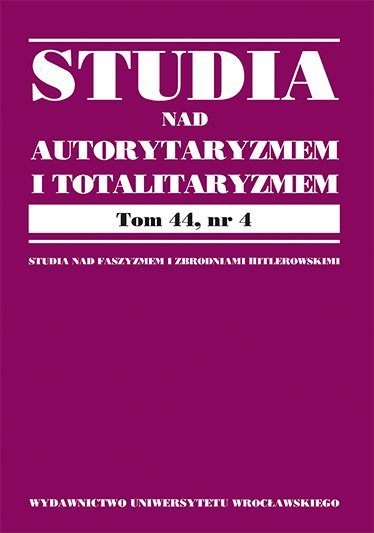Uwalnianie przestrzeni publicznej od symboli komunizmu — zakres obowiązków wojewodów (w świetle najnowszego orzecznictwa Naczelnego Sądu Administracyjnego)
Decommunization of public spaces — voivodes’ scope of duties (in light of the most recent decisions of the Supreme Administrative Court of Poland)
Author(s): Jarosław WyrembakSubject(s): Administrative Law
Published by: Wydawnictwo Uniwersytetu Wrocławskiego
Keywords: decommunization; voivodes’ scope of duties; the Institute of National Remembrance; the Supreme Administrative Court of Poland;
Summary/Abstract: The analysis of the so-called Decommunization Act’s application, after several years of its being in force, points to a significant legal problem. The recent decisions of the Supreme Administrative Court further expose said problem. The issue can be encompassed in the following question: what is, ultimately, the scope of voivodes’ duties with regard to investigating the facts of decommunization proceedings, especially in view of the opinions drawn up by the Institute of National Remembrance (Instytut Pamięci Narodowej, IPN) for the purposes of these proceedings? The answer to this question depends largely on the weight given to these opinions. In particular, if the voivodes are not bound by the IPN’s decisions, one may argue that they should be required to investigate the factual background on the issues on which the IPN had already fi led an opinion. Consequently, voivodes should make historical and legal decisions against the analyzed factual background independently.Analyses included in the current study suggest that, considering the recent decisions of the Supreme Administrative Court of Poland (which have a significant impact on the legal practice), voivodes are not bound by the IPN’s opinions. There is a strong emphasis on the view that the IPN’s opinions should each time be treated as part of evidence subject to verification, constituting grounds for proceedings pursuant to the provisions on the Decommunization Act. Therefore, in each case, verifying those opinions should be the obligation of the voivode. At the conceptual level, there was a condition that voivodes’ verifications of opinions should not interfere in substantive issues and should only examine methodological issues. At the practical level, however, there are cases in which verifying the IPN’s opinions beyond the methodological scope is allowed. The findings indicated above are considered in the context of the author’s belief that:— the analysis of the text of the Decommunization Act must lead to the conclusion that the legislator decided on the binding force of the IPN’s opinions, especially with regards to voivodes;— considering the legal status of the IPN, the scope of its tasks and competences, and the scope of tasks, capacity and competences of voivodes — as well as the specific nature of activities and proceedings based on the Decommunization Act — the opinions of the IPN cannot be treated as a regular part of evidence, requiring verification by the voivodes; from a systemic perspective, they should be treated as statements of knowledge by a competent state institution cooperating with the voivodes in activities and proceedings related to the Decommunization Act.
Journal: Studia nad Autorytaryzmem i Totalitaryzmem
- Issue Year: 44/2023
- Issue No: 4
- Page Range: 61-87
- Page Count: 27
- Language: Polish

